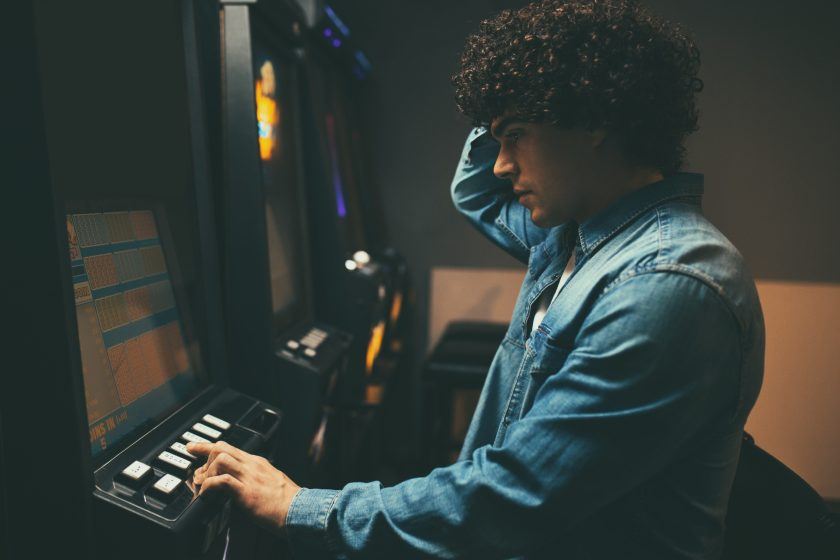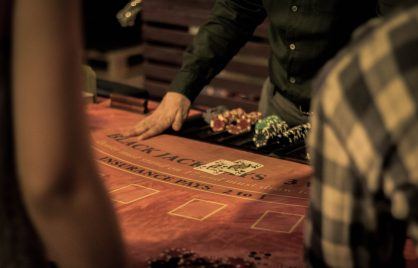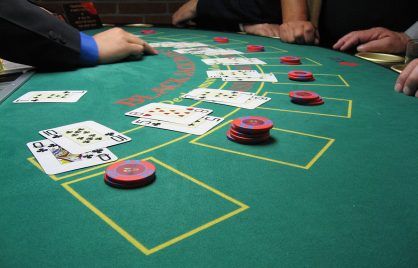How To Gamble Responsibly (And Stop When You Need To)

How To Gamble Responsibly
1. Remember: It’s Paid Entertainment
Gambling is a fun form of entertainment, but it’s important to think of it in the same way you might buy a movie ticket or a fair ride. It’s exciting during the experience, and if you happen to win something extra, that’s great. But the point is to enjoy the core time and experience.
2. Set a Money Limit
It can be hard to keep track of money in the heat of the moment. That’s why it’s important to set a gambling budget, one that still gives you plenty of cash for your normal expenses, and stick to it. If you go through all the money, it’s time to stop.
3. Set a Time Limit
Whether you’re winning or losing, time seems to run at a different pace when you’re gambling. Make sure that you set a time limit for your gambling, making time for other exciting or important activities.
4. Don’t Chase Losses
Some days you’re up and some days you’re down. As long as you stay within your gambling budget, it should still be fine. It’s important you avoid gambling more in the hope of making back lost money. This is called chasing losses and can lead to problem gambling.
5. Avoid Becoming Too Superstitious
Prefer a lucky table, or keep playing the same game where you won big? No problem! But remember that gambling is all about luck and chance, and no amount of superstition will change the outcomes. Also, being lucky or unlucky in gambling does not relate to your overall luck as a human being!
6. Never Fall for the Gambler’s Fallacy
Gambler’s fallacy is the belief that if an event has happened more frequently than expected, such as a dice roll showing the same number multiple times in a row, it is less likely to happen again in the future, or vice versa. This is an incorrect belief.
The probability of hitting red 2 times in a row might be way higher than 8 times in a row, but that doesn’t mean that just because the roulette wheel has shown red 5 times, it has to be black the next spin. Each outcome in any game of chance is independent of what happened before it. Don’t assume that results will change because of how the game has gone so far.
7. Learn the Rules and Odds of the Games
While blackjack and craps might have some of the best odds in a casino, they still have certain bets with comparatively bad odds. On the flipside, overall odds are worse for slots and keno, but people can still win big and have tons of fun. What’s important is to learn the rules and understand the odds of the games you enjoy. Some games are more entertaining than others for certain people, no matter the odds.
8. Don’t Play with Money You Don’t Have
Whether it’s using a credit card or borrowing from friends and family, never play with money you don’t have. It’s meant to be a fun pastime, so if you can’t afford it, it’s best not to gamble at all.
9. Avoid Gambling Under the Influence
Gambling is often paired with a fun atmosphere, complete with all the usual party essentials. But whether you’re under the influence of alcohol, or a high roller friend on a winning streak, avoid gambling while intoxicated. Your decisions won’t be as good, and you might play beyond your money or time limits.
10. Gamble During the Good Times
Gambling should be fun and exciting, best enjoyed with friends. If it becomes an escape during depression or hard times, it’s more likely to become a problem. So, enjoy gambling during the good times, but don’t fall back on it to solve your issues when times are tough.

When gambling stops being fun and is no longer within your control, it’s time to start taking the steps to stop.
How to Stop Gambling
1. Admit you have a problem
The first step to overcoming your addiction is acknowledging that you have a problem, which isn’t an easy thing to do. You will feel emotionally confused: the rational part of your personality will be telling you to stop because you know it’s destroying your life, while the other side of you will be craving the highs of gambling.
It’s time to seek out help and there are multiple ways you can do this.
2. Speak to someone you trust and join a support group
It is important that you confide in someone who you feel comfortable talking to and who will be able to offer you emotional support. Together you can create a plan of action. Whether you want to combat your addiction without professional help or you’d prefer to see a trained specialist, they will act as your guide throughout.
Many people find it helpful to speak to others in an online gambling addiction forum or read each other’s stories to help stay motivated. It is hugely comforting to know that you’re not alone.
3. Block your access to gambling
Delete any gambling apps, block any gambling websites, and leave any tip forums that you think could tempt you to relapse. You can use a self-exclusion tool like GAMSTOP to automatically block you out of hundreds of gambling and betting sites.
You can also limit your access to gambling by avoiding land-based casinos full stop, as well as avoid hanging around with any friends or family who enjoy gambling recreationally.
4. Take control of your finances
Ask your supportive friend or family member if they can manage your finances for you, at least for a month or two while you deal with your addiction. This does not mean asking them to pay off your debts – it means giving them control of your money. They can manage your bank account and credit cards while you seek out debt management help.
5. Keep yourself busy
Like any addiction, withdrawal is the hardest part. To overcome it you need to keep busy. We suggest picking up a new hobby, like a physical activity that can give you a rush – rock climbing is a great option. Many people also find taking up yoga and meditation can help with the feelings of guilt and anxiety that often come hand-in-hand with a gambling problem.
Visit our gambling addiction help page, which has been verified by two addiction specialists, for more information and a comprehensive list of resources.
Lead image credit: Getty Images


